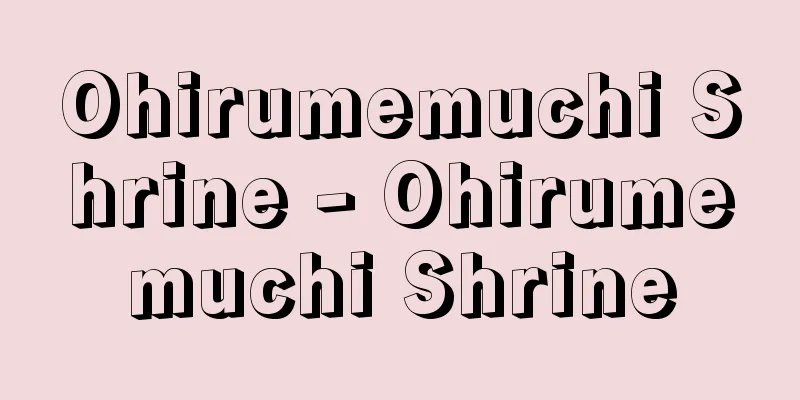Grace - gratia (Latin)

|
The grace that God gives to humans, a free gift from God. It is also called grace, and is now called favor. It does not only refer to the object given by God, but also to something that shines the mercy of God the giver. It also means that the human being who receives this gift is enveloped in God's mercy. According to the New Testament, God's greatest grace is that God the Father "so loved the world that he gave his only begotten Son" (John 3:16). Christians believe that this includes all other gifts. This conviction is expressed in the words, "He who did not spare his own Son but gave him up for us all, how will he not also with his Son give us all things?" (Romans 8:32). All this grace is given freely by God and is not obtained by human merit. God's "grace and truth came through Jesus Christ" (John 1:17), and only through him can humans receive grace from God the Father. To put this theologically, those who believe in the saving work of the cross and resurrection of Jesus Christ become "children of God," and God bestows upon them His divine essence. This self-giving of God is the primary essence of grace. However, although this self-giving is already given to believers in this life, it is not fully manifested outside, and many additional graces of God are necessary to maintain it. Through these graces, believers can faithfully preserve God's self-giving, intuit God after death, and enter into bliss. [Kadowaki Yoshiyoshi] Source: Shogakukan Encyclopedia Nipponica About Encyclopedia Nipponica Information | Legend |
|
神が人間に与える恵み、神の無償の賜物(たまもの)のこと。聖寵ともいい、現在では恩恵といわれる。それは神の与えた対象物をさすだけではなく、与え主である神の慈しみを輝かせるものである。それとともにこの賜物を受ける人間を神の慈しみで包み込むことを意味している。『新約聖書』によれば、神の最大の恩寵は、父なる神が「自分の独子(ひとりご)を与えたるほど、この世を愛した」(「ヨハネ伝福音(ふくいん)書」3章16節)ことにある。キリスト信者はここに他のすべての賜物が含まれていると信じている。この確信は、「わたしたちすべてのために、自分の子をさえ惜しまずに死に渡された神が、どうして、御子(みこ)に添えてすべてのものをわたしたちにくださらないことがあろうか」(「ロマ書」8章32節)ということばのうちに表明されている。この恩寵はすべて神から無償で与えられたものであって、人間の功徳(くどく)によって得たものでない。神の「恩寵と真理とはイエス・キリストを通してきた」(「ヨハネ伝福音(ふくいん)書」1章17節)のであり、人間は彼を通してのみ父なる神から恵みを受けることができる。 この事態を神学的に言い直せば、イエス・キリストの十字架と復活の救いのわざを信ずる者は「神の子」になり、神はその者に神的本質そのものを譲与する。この神の自己譲与が恩寵の第一次的本質である。しかし、この自己譲渡は、この世においてすでに信者に与えられているけれども、それは十全には外に現れていず、また、これを保つために付随的な多くの神の恩寵が必要である。これらの恵みによって、信者は神の自己譲与を忠実に守り、死後神を直観し、至福に入ることができる。 [門脇佳吉] 出典 小学館 日本大百科全書(ニッポニカ)日本大百科全書(ニッポニカ)について 情報 | 凡例 |
<<: Interval - Ontei (English spelling) interval English
Recommend
Flower garden plants - kakien geishokubutsu
...The number of species of plants cultivated for...
United States Navy - AmeriKaIgun
After World War II, electronic weapons, jet-power...
Ibuka Kajinosuke
Born: June 10, 1854 (Ansei 1) in Aizu [Died] June ...
Chain silicate
...The number of tetrahedra in a ring can be 3, 6...
Hesse
German poet and novelist. Son of a pastor, both pa...
Hitachi [city] - Hitachi
A city facing the Pacific Ocean in northeastern Ib...
Winchester, OF (English spelling) WinchesterOF
…Rifles introduced from Europe to colonial Americ...
Folger Library
The official name is the Folger Shakespeare Librar...
Limnogale mergulus (English spelling) Limnogalemergulus
...The life span in captivity is about 5 years. T...
False polyps - Gipo-rip
…They appear in association with inflammation suc...
Agemasari - Agemasari
The face of a person who has come of age and has h...
Sawara (Chamaecyparis pisifera)
It is an evergreen tree of the Cupressaceae family...
Tatting lace
In the narrow sense, lace made by knotting thread...
English primrose (English spelling)
…It is cultivated for flower beds or as a potted ...
Dichapetalum (English spelling)
A tropical woody plant belonging to the Dicapetala...









